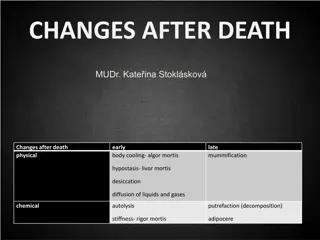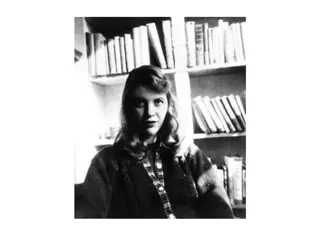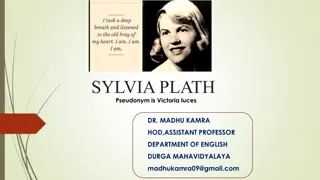Analysis of Oppression and Death in Sylvia Plath's "Lady Lazarus
Sylvia Plath's poem "Lady Lazarus" delves into themes of oppression and death through the use of powerful imagery and allusions to Nazi Germany. The speaker in the poem expresses a complex relationship with death, portrayed as an art they excel at. The references to World War II and the Holocaust add layers of meaning to the poem, highlighting the speaker's struggles and desires. Plath's impactful portrayal of defiance and rebirth captivates readers, leaving them to ponder the intricate nature of life and mortality.
Download Presentation

Please find below an Image/Link to download the presentation.
The content on the website is provided AS IS for your information and personal use only. It may not be sold, licensed, or shared on other websites without obtaining consent from the author.If you encounter any issues during the download, it is possible that the publisher has removed the file from their server.
You are allowed to download the files provided on this website for personal or commercial use, subject to the condition that they are used lawfully. All files are the property of their respective owners.
The content on the website is provided AS IS for your information and personal use only. It may not be sold, licensed, or shared on other websites without obtaining consent from the author.
E N D
Presentation Transcript
Lady Lazarus September 18, 2014
Sylvia Plath(1935) poet and novelist, born in Boston, Massachusetts. She mar ried Ted Hughes in 1956. After teaching in America she an d Hughes returned to England in 1959. Her first volume of poetry, The Colossus, appeared in 1960, and in 1963 her only novel The Bell Jar. Less than a month after its publication she committed suicide in London.
Lady Lazarus Plath describes the speaker's oppression with the use of World War II Nazi Germany allusions and images. She develops a German image to denote Nazism and in t urn, oppression. She accounts this connotation to the doc tors in the poem, such as calling the doctor Herr Doktor, because they continue to bring her back to life when all s he wants is to finally die. At the end of the poem, she is represented by the image of a phoenix. This next decade will be different for the sp eaker because she plans to "eat" the men, or doctors, so t hey cannot revive her next time she faces death.
Paradox of Death As a seashell./ They had to call and call/ And pick the worms off me like sticky pearls. Dying/ Is an art, like everything else./I do it exceptionally well
My Dying, a Victim of Holocaust So, so, Herr Doktor./ So, Herr Enemy./ I am your opus,/ I am your valuable,/ The pure gold baby/ That melts to a shriek./I turn and burn.
Authors Imaginary Victory over Nazi(Men) Out of the ash I rise with my red hair And I eat men like air.























